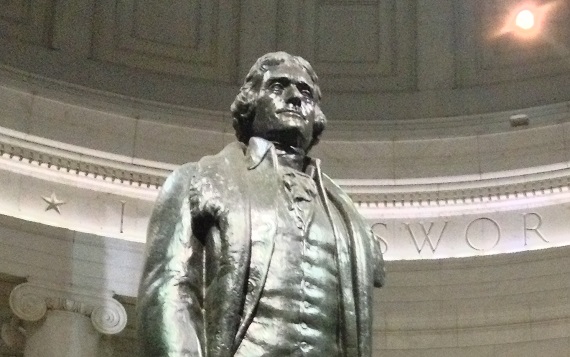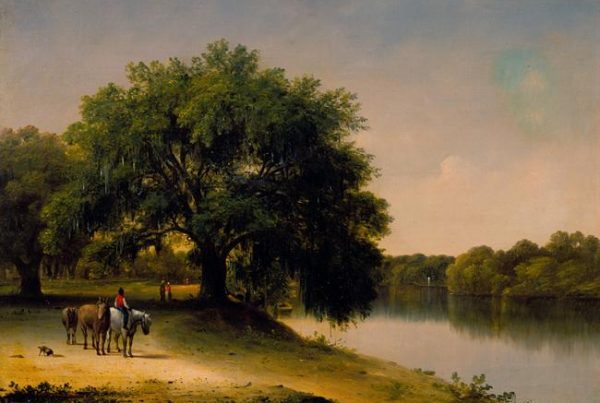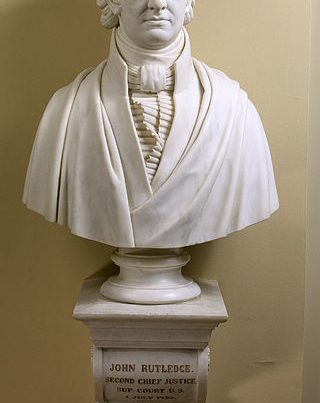Historians today with interest in historiography—what is often characterized simply and somewhat misleadingly as the history of history—seem to be in general agreement that the aims and methods of “historians” over millennia have changed. Study of history, as the argument goes, unquestionable shows that. There was yesterday’s history, there is today’s history, and there will be tomorrow’s history, and there need not to be any thread that any of the three have in common. To complicate matters, the methods used in any epoch are not uniform, standardized. And so, the common-sense notion that the aim of a historian is to craft, at least in approximation, veridical narratives about the past cannot be maintained.
There is today uncritical acceptance by many historians of the notion that professional history is dead—viz., that we are in a phase where we have disavowed the notion that we can know anything about the past and so there is no need of academic historians. Even “uncontested” facts cannot be assumed to be true. Moreover, by accessing the past through the lens of the present, we inevasibly import present biases. Those biases are exacerbated by the personal partialities, dictated by the biology and experiences, of each historian.
Furthermore, the modern notion that there is a method for history—that history is fact-based, analytical, critical, rigorous, and comprehensive—is ludicrous, and so, anathema. If there is no method to history, then there are no professional historians. In the epigrammatic words of Progressivist Carl Becker, “Everyman his own historian.” He adds: “Every generation, our own included, will, must inevitably, understand the past and anticipate the future in the light of its own restricted experience, must inevitably play on the dead whatever tricks it finds necessary for its own peace of mind.” By “trick,” Becker does not mean “malicious invention,” but unconscious effort to grasp what we are doing given what we have done and what we aim to do. And so, we seek to use “Mr. Everyman’s mythological adaptation of what actually happened.”[i] In short, there is no way for anyone to access the past in the manner of the timeless words of Leopold von Ranke, “wie es eigentlich gewesen ist.”[ii] We are forever prisoners of the present and of our own constitution and experiences, which shape our perspective of things. Modernism is passé; we are, in today’s language, post modernism, hence Postmodernist historiography.
Jeffersonian scholars, at the lead of Pete Onuf, have jumped on the bandwagon of postmodernist subjectivism. In The Mind of Thomas Jefferson—“mind” being a malapropism of the first order, because the book does nothing to tell us anything about the mind of Jefferson other than that it is inaccessible—Onuf tells us that “historians who look for disclosures of an authentic self behind these many voices [of Jefferson] and roles will be frustrated.” Jefferson was in his letters a brilliant chameleon who pandered to the interests and needs of his varied correspondents.[iii] Moreover, Onuf is not shy about disclosure that his approach to Jefferson is postmodernist. For instance, while he praises Conor Cruise O’Brien’s “trashing of Jefferson” because O’Brien lays “his cards on the table,” Onuf condemns O’Brien’s aim of truthful history. “O’Brien’s pseudopositivism (his book strings together long quotations from original sources, with a few ‘talking head’ secondary sources thrown in) clearly signals his alienation from fashionable humanities scholarship: no relativism, no constructivism, no ‘invented tradition,’ thank you, just the facts.”[iv] The great historians, for Onuf, concern themselves with what is trendy, what is fashionable, not what is truthful.
Onuf’s remonstration—if it can be called “remonstration”—is incredibly vacuous, but it typifies the sort of scholarship that today is fashionable and published. It is astonishing that he repudiates another scholar for grounding claims in “just the facts,” as if facts-grounding ought to be some sort of crime. O’Brien it seems is being taken to task for not aiming to avoid fantasy in his account! Yet that in some sense typifies Onuf’s willowy approach to Jefferson and Jeffersonian scholarship today. The sensational trumps the factual.
Onuf’s postmodernist catachresis is also manifestly on display in his 1993 collection of off-the-wall essays in Jeffersonian Legacies. That comes out cleanly—if expressions of postmodernism are ever clean—in Dan Jordan’s foreword in which he describes the conference which gave birth to the book as “an intellectual free-for-all” driven by “revisionist zeal, presentism, and a tint of political correctness.”[v] It comes out also in Joyce Appleby’s introduction in which she talks about how the present historical commitment to “pluralism, diversity, multiculturalism, relativism” makes difficult our grasp of Jefferson’s “scientific gloss” of things. Were he today alive—Appleby writes in 1993—Jefferson, she asserts, would have disavowed his Rankean historical ideals.[vi]
There are crippling problems for postmodernists, and I include the early Progressivists among them.
First, historians’ acceptance of historiography as a valid discipline creates a complication. The notion that there can be a history of history presupposes some sort of meta-history with its own methods or standards that enable us to categorize the varied and discordant approaches to “chronicling” past events as histories of some form. In sum, historiography requires that all types of history share some common element that enables us to categorize them as histories, otherwise historiography would be impossible, meaningless—a word without denotation. If there is some essence to the history of history, there too must be some essence to history, and that allows for criteria for excluding some avowed forms of history from categorization as historical. Likewise, if there is no essence to history, then there cannot be historiography other than of an arbitrary sort. In short, the existence of historiography as a valid discipline presupposes that some approaches to the past are not aboveboard histories.
Moreover, the notion that there are phases of history—pre-modern, modern, and postmodern phases, in the words of postmodernist historiographers—strongly suggests intellectual movement of some sort. Recognition that there can be no history “as it actually happened”—more plainly, that history is subjective, not objective—must be an epistemological insight and an advance the likes of which we were not in possession in the modern phase, if it is to be a substantive and accurate claim. Yet if the movement from modern to postmodern is for the better—and that is the only way to take the claim, for otherwise it is gibberish—then the postmodern historian crafts a claim that goes well beyond our own “restricted experience.” It is a claim that transcends time, and thus, is a trick not just on the dead, but on the living. In short, the assertion that all utterances are essentially subjective cannot be grounded, for it too is suffocatingly subjective. We here find ourselves walking on a treadmill.
Last, there is the strange notion that we can have no access to the actuality of past events. While history cannot chronicle events “as they actually happened”—it is not even clear what that phrase means—that does not mean that it is inescapably subjective and uninformative, as postmodernists claim. That there cannot be any once-and-for-all account of, say, the Revolutionary War, does not imply that we cannot know anything about the Revolutionary War—that two write about it is to engage in drivel. Historians’ narratives are fact-guided, and larger access to critical first-hand documents and, for instance, archeological or biological data, gives historians more raw data from which to work. There is also the indispensability of critical interaction among historians that functions as a corrective to false theses—an interaction that for postmodernists is not profit, but play.[vii]
Postmodernist historiography, I have shown, goes nowhere and does nothing. It shows merely that there are serious difficulties with fact-based history, but fact-based historians know that. That is what makes praxis of history so challenging, yet so rewarding.
Yet the challenge of fact-based Jeffersonian history is even greater, because his was a mind of near matchless breadth and depth—a student, and no tyro, of architecture, agriculture, poetry, mathematics, meteorology, law, ethics, politics, religion, music, paleontology, philology, and history, inter alia. That invites no ordinary historians to capture the large mind of the man. It is no wonder that the many runty, insignificant historians—and I intentionally speak denigratorily—who take up Jeffersonian scholarship focus on Sally Hemings or race and shun the standards of veridical scholarship.
In “The Memoirs of a Few Negroes,” Annette Gordon-Reed sums, “In the end, it will probably be left to novelists, playwrights, and poets, unencumbered by the need for footnotes, to get at the ultimate meaning of this story. That effort, done in the right way, will yield universal truths as important and real as any to be found in history books.” That is where we are today. Let there be no more footnotes and then, and only then, shall we find enlightenment!
********
[i] Carl Becker, “Everyman His Own Historian,” American Historical Review, Vol. 37, No. 2, 1932: 235.
[ii] “As it actually happened.” Leopold von Ranke, Histories of the Latin and Germanic Nations from 1494–1514, trans. Wilma A. Iggers (New York: Routledge, 2011), 86.
[iii] Pete Onuf, The Mind of Thomas Jefferson (Charlottesville: University of Virginia Press, 2007), 33.
[iv] Pete Onuf, The Mind of Thomas Jefferson, 53–54.
[v] Daniel P. Jordan, Foreword, Jeffersonian Legacies, ed. Pete Onuf (Charlottesville: University of Virginia Press, 1993), vii–viii.
[vi] Joyce Appleby, Introduction, Jeffersonian Legacies, ed. Pete Onuf (Charlottesville: University of Virginia Press, 1993), 15.
[vii] It is astonishing, given the theoretical flexibility that Onufian postmodernism allows for interpretations of Jefferson (an infinity!) that the accounts he endorses underscore Jefferson’s opprobrium.







Excellent article. The concerted effort to tear down Thomas Jefferson – arguably one of the greatest Americans to ever live, if not *the* greatest – is deeply dismaying, but not surprising. Jefferson’s political ideals represent American thought at their best: decentralization, confederation, agrarianism, a healthy skepticism for authority and state power, and respect for the rights of the individual – all concepts deeply antithetical to the United States as it stands.
Well put.
ANYTHING “post-modernist” is pure garbage! Don’t even bother to read it. There is no scholarship, just an agenda that uses parts of facts cobbled together with desirable fiction to present the poor target of the worthless “scholar” doing the “research.” At one time people at least tried to be objective and accurate. Today, such tools are anathema to what passes for scholarship. Don’t bother to buy any new “history” unless you know that the author is sound.